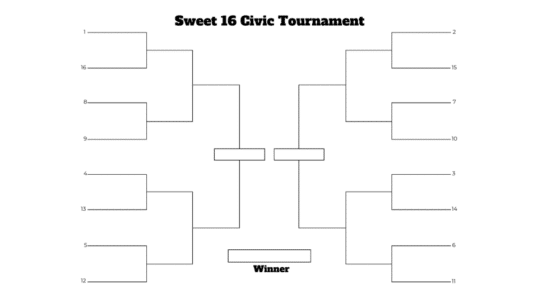The current tendency within IF is to recruit at least the generalist panels via Public (or “Citizen”) Discussions. Those of us who use Meetup to recruit Citizen Discussion participants have a greater chance of connecting with a broader public. We are not limited to our direct friends or acquaintances or to the slightly broader network of friends or acquaintances of those we know. Staying within one or two degrees of separation from ourselves likely increases the odds that our panelists will be very similar, in social, political, and cultural terms, to ourselves. Even Meetup gives us a sense of who might be showing up at the meeting by listing other Meetup groups to which each person belongs (some people will keep this information private). If we are a left-leaning environmentalist who hated Bush, voted for Obama, wonders why we’re still not out of Iraq, and believes in good public schools and universally accessible health care, are we likely to include a Meetup participant who also belongs to a tea party group or to the Young Republicans or Ron Paul for President groups? I would like to argue here that we should give serious consideration to including such participants in our Citizen Discussions and on our Sanctuary Panels.
The Benefits of a Contrasting Panel
The primary benefit of composing a panel that is diverse in its political points of view, cultural variations, race, class, gender, and age is that the panel will generate much more robust and contrasting conceptual possibilities. When I was debriefing a Citizen Discussion group about the Rewarding Work report, a Libertarian-leaning gentleman observed that it seemed to have been written from a “pro-regulatory, statist/interventionist perspective” and that he found this off-putting. This participant often expressed ideas with which I did not personally agree, but I actually found his style of engagement to be much less combative than some of the Liberal-minded folks at the table. I would definitely have invited him onto my Sanctuary Panel had it not been for his very intense and off-putting wife, who would have insisted on being included as well. The fact that a person like this is being put off by one of our reports because it does not represent a broad enough array of possibilities is not good. And it is hardly just the Rewarding Work report that could have this sort of effect. I am confident that all of us work to conduct balanced projects, but I suspect we could do better—mainly in the recruiting. The final written Discussion Report will always reflect the author to some extent, but the possibilities themselves will be much more robust the more carefully we consider the people we place around our tables.
Social Conservatives v. Extremist Authoritarians
Regardless of what our initial impression of a potential participant might be from Meetup or otherwise, it would seem prudent to collect a better sense of what the person is really like. Clearly, we do not want participants that cannot be civil and that cannot fully engage a wide range of opinions and ideas. However, it seems important that we, too, be aware of our own tendencies to dismiss people who express ideas with which we differ. Moreover, we do not want to conflate strongly held opinions with which we might disagree with truly rigid thinking. Many of those who think rigidly—on the Right and on the Left—are extreme in their views and are often autocratic in their assertion (or assumption) that everyone should agree with their views. In the end, there seems little difference to me between the idea that animals are obviously sentient and should therefore have rights and the idea that there is no evidence that carbon dioxide is a pollutant. Both of these are pretty extreme views to the average American. While an autocrat would not fit well within a democratic discussion, a social conservative/Libertarian who enjoys exploring ideas—and many do—would. As someone who leans Left, I often feel as if the Right’s talk shows seem more shrill and more dumb-downed. Really, though, it is the style of talk on such shows that offends me. While such far-Left shows tend to involve far less yelling, the implicit assumption of Truth is just as offensive. What I love about IF is that we are actively seeking to cultivate civilized and non-consensual discussion. The challenge for us is to identify and engage the widest range of individuals who will help us to animate this civil space we seek to build.



